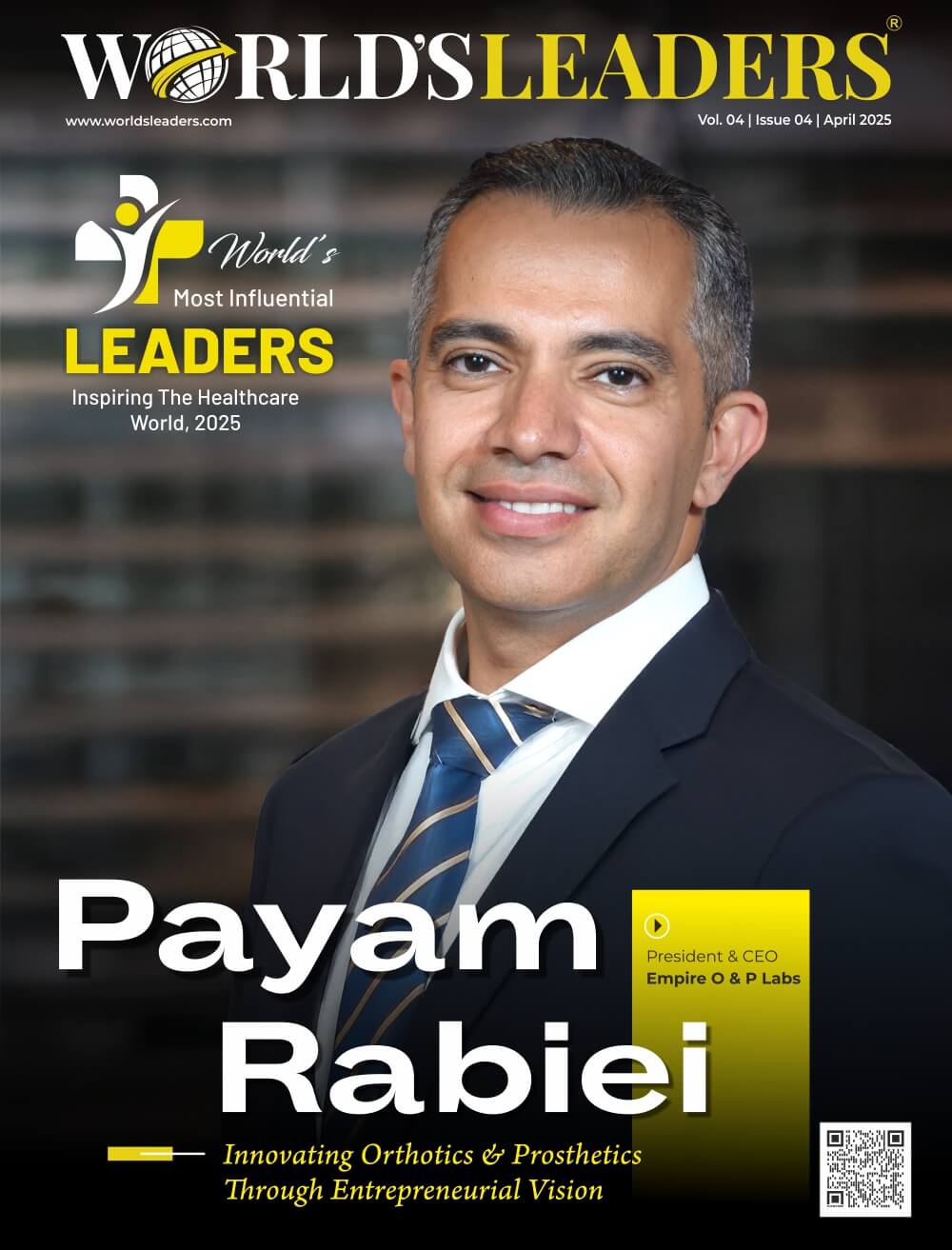Meet Thomas Herzog whose journey from a young professional in the logistics industry to the founder and CEO of FREIGHT-LOGISTIC AG is a testament to his expertise, leadership, and commitment to excellence. His pragmatic KISS approach and extensive industry experience have made him a respected figure in the logistics sector, driving the success of FREIGHT-LOGISTIC AG and setting a high standard for quality and efficiency.
Thomas attended the Commercial School Basel for three years, where he gained a solid foundation in business. After completing his education, he worked for ten years in a mid-sized, family-owned international forwarding company. During this period, Thomas acquired extensive knowledge of European and deep-sea business operations.
After a decade in the forwarding company, Thomas received an offer to lead the logistics department of a small trading company. This role involved managing business flows between Asia, Europe, and South America, often based on Letters of Credit and “back-to-back” business models, which are rare today. At the age of 26, Thomas was approached by a small forwarding company to build up a deep-sea department and represent the company at business events. Despite being the youngest attendee at these events, he quickly earned the respect and friendship of industry leaders.
In 1987, Thomas founded his first international forwarding company, which offered standard services and specialized in pharma logistics. The company handled import shipments from India to Switzerland, managed them in a bonded warehouse, and neutralized the packages for worldwide re-export. His innovative approach and dedication to quality service have been key to his success.
Architecting Sustainable and Comprehensive Supply Chain Solutions
FREIGHT-LOGISTIC AG, founded in 1999, is a premier boutique forwarding and logistics company, renowned for its top-tier expertise and acting as an architect for the supply chain. The company offers comprehensive transport solutions, including sea, air, road, rail, sea-air, and barge services for both imports and exports. With a robust global network, FREIGHT-LOGISTIC AG ensures efficient and reliable logistics services worldwide.
A cornerstone of FREIGHT-LOGISTIC AG’s operations since its inception has been the short-sea business in Europe. The company excels in providing door-to-door services across various regions, from Scandinavia to Turkey, Switzerland to the UK, Ireland, the Baltic States, and Spain. These services are designed with a strong emphasis on environmental sustainability, aiming to minimize CO2 emissions as much as possible.
In addition to its core transport services, FREIGHT-LOGISTIC AG offers comprehensive customs brokerage, warehousing, distribution, and other value-added services tailored to meet the demands of its customers and agents. This extensive suite of services underscores the company’s commitment to delivering end-to-end logistics solutions that are both innovative and eco-friendly.
Vision and Opportunity in Global Logistics
In January 1998, a significant legal challenge arose when a major German global pharmaceutical company initiated legal actions against Thomas’s company, alleging patent infringement. Confronted with a claim of 120,000,000 Swiss Francs, Thomas, as the owner and CEO, faced a daunting situation. It’s noteworthy that his company never issued commercial invoices to those customers using their business paper, as that would have positioned them as the seller. At that time, the German company reported a worldwide loss of approximately 3.3 billion Deutsche Marks due to patent infringement. As rumors spread throughout the year, Thomas’s company began to lose agents and customers.
In response to these challenging circumstances, Thomas made the difficult decision to close down the company in an orderly manner. Subsequently, he founded FREIGHT-LOGISTIC AG in Switzerland.
Thomas believes that vision is crucial, especially in our current times marked by global political instabilities, war regions, climate issues, hunger, and migrations. Despite these problems, there is a silver lining—the reconstruction of countries after wars or environmental disasters. This presents significant opportunities for industries, including the supply chain sector. Thomas is confident that the business of worldwide logistics will never cease and that there will always be a need for professionals in this industry.
Embracing Emerging Transport Technologies
Thomas anticipates a further reduction in the number of shipping lines due to additional mergers, which will intensify worldwide competition. Despite this development, he sees ample opportunities for medium and small-sized forwarding companies to thrive as top partners for the industry. These companies can react flexibly, train their staff for all potential situations, and maintain control over costs. This flexibility is supported by a worldwide network of agents who cooperate almost exclusively together.
Thomas highlights the emergence of new transport modes, such as drones and electric trucks without drivers, which create new possibilities. Additionally, advancements in 3D printing and artificial intelligence present unknown future developments. To be prepared for these changes, he emphasizes the need for well-trained staff.
Modern Workforce Priorities in the Global Logistics Industry
In Switzerland, Thomas believes the country is in a prime position regarding training, with nearly enough qualified staff available. Specifically, Basel, as the leading logistics hub in Switzerland, benefits from the country’s geographical location and proximity to neighboring France and Germany, offering an additional personnel market. Besides industry-specific expertise, today’s workforce requires strong IT software knowledge, proficiency in multiple languages, and, ideally, experience abroad.
As is certainly the case in other countries, Thomas is observing changes within the younger generations who now prioritize work-life balance. Many among them seek a nine-to-five workday with a high salary.
Nowadays, articles about young people’s burnout are common in almost all newspapers, leading slightly older individuals to wonder how they managed without burning out, water bottles, iPhones, and sneakers.
While it’s not Thomas’s place to determine the reasons for these changes, he emphasizes that those aspiring to a career in global logistics need common sense, psychological strength, a will to solve problems, and flexible thinking. Longer working hours should not be a problem, as the logistics industry often faces challenges beyond regular office hours. However, for those who love this field, it offers daily opportunities to gain new knowledge, solve challenges, and potentially transition to almost any other commercial industry without difficulties.
Role and Passion in Leading a Small Company
As owner, President, and CEO, Thomas has his legal duties, but in a small company, these are not labor-intensive. Personally, he much prefers to be involved in new projects, finding solutions to problems, and customer acquisitions; these activities still bring him the most joy and satisfaction.
Regarding supply chain and society, the COVID-19 pandemic has highlighted the critical importance of a well-functioning supply chain. The newspaper doesn’t just appear in the mailbox, jeans don’t come out of a box on their own, and milk doesn’t simply appear in the refrigerator. There is a complex process behind these everyday conveniences that often goes unnoticed by society. Additionally, 99% of the time, a truck is on the road because society, or rather a representative of it, wants something. Therefore, it’s unfair to curse the truck driver who’s driving in front, as they are fulfilling the demands of society.
Moreover, the rush to meet customer demands promptly often leads to another significant issue: waste.
The Necessity of Comprehensive Supply Chain Expertise
Thomas states that, while changing the sales behavior of the industry is not feasible, today’s political pressure is pushing the economy towards CO2-neutral means of transport and routes. Our industry cannot handle this change without cooperation from the entire sector. It is crucial to supplement today’s business administration courses with teachings on a CO2-maximized supply chain, even if it results in higher costs. Technological advancements in environmentally friendly transportation methods are expected and will be necessary.
Another possible topic is the use of “gray boxes” from the 90s—containers independent of shipping companies. Utilizing “nameless containers” could save billions of USD on empty positions globally.
A comprehensive supply chain is indispensable, necessitating highly trained staff. This requirement varies depending on the company’s task portfolio, with small companies often needing a broader range of expertise. For instance, knowledge of sea freight, air freight, and short sea shipping is in high demand. Therefore, it is vital to thoroughly vet applicants to ensure they fit well within a small team.
In contrast, if a large company seeks staff to transport consolidated containers from point A to point B, the task is relatively straightforward.
Challenges and Realities of Starting Your Own Business
For an entrepreneur, it is existentially important to have good, qualified staff who identify with the company. Thomas shares that his personal goal was, and still is, to get every employee to run their business like their own “entrepreneur.”
People who decide to start their own company today must be aware that they are not only taking risks with the capital they have paid in. Building a business takes time and challenges people both mentally and physically. It is also important that your partner or family is behind you. You have to learn to set priorities and plan time for yourself and your family whenever possible. Time management is essential, and sport within a reasonable framework provides a certain basis for fitness, which is also extremely important.
Thomas knew a few managers from his industry who worked as managers in large global companies and lost their jobs during restructuring or takeovers. None of them ever started their own company because the fear of failure was too great. As an entrepreneur, no matter how big the company is, you have to be ready to “eat dust” and have the willingness to fight because things never always work out the way you wrote in the business plan.
Thomas asserts, “Life is full of challenges, and one of those is starting your own business. An unwavering belief in it forms the basis for success.”
For more information- mail@freightlog.ch





